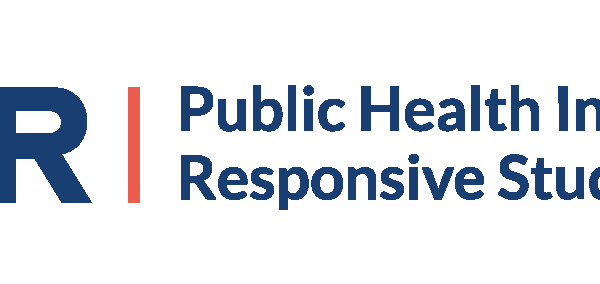LGBTQ+ Inclusion at Work – Learnings from the Stonewall Workplace Conference
By Jules Stimpson, Leeds Mind
I recently attended the Stonewall Workplace Conference and thought I would put my learnings into a blog to share across the Mindful Employer Network. LGBTQ+ experiences are known to increase prevalence of mental health difficulties so inclusive workplaces are crucial in supporting the mental health of LGBTQ+ colleagues.
The matters I am sharing are of particular importance to me as a year ago I came out within my organisation as being transgender. I already had experience of identifying as LGBTQ+ in the workplace and fully on board with inclusive work environments as have personally experienced both direct and indirect discrimination within workplaces. Stonewall quotes the below stats in reference to being LGBT at work:
“ More than a third of LGBT staff (35%) have hidden that they are LGBT at work for fear of discrimination.
Almost two in five bi people (38%) aren’t out to anyone at work about their sexual orientation, compared to seven per cent of gay men and four per cent of lesbians.
One in four trans people (26%) aren’t open with anyone at work about being trans. This number increases to about two in five non-binary people (37%) who aren’t out at work.
Almost one in five LGBT staff (18%) have been the target of negative comments or conduct from work colleagues because they’re LGBT. ” (Stonewall LGBT in Britain –Work Report, 2018)
It is therefore so important to ensure workplaces are spaces people can be their true selves, free from discrimination as working in an inclusive and supported environment is integral to positive mental health at work. For context, during the conference I attended the main speakers as well as workshops. I have condensed my learnings to some key take home points from across all sessions. I must state that I attended the conference from my own lens as a transman and from my own organisation lens. I work for Leeds Mind which is a third sector organisation with just over 100 employees. The five take homes below, therefore come from my own perspective and experience.
1. Pronouns matter
The conference encouraged the addition of pronouns into IT systems, email signatures, name badges and introductions to allow people to be seen and heard as their gender identity removing incorrect assumptions from colleagues. Gender and gendered terms are a part of every day language. People using the incorrect labels and terms for someone can be incredibly damaging to that individual which is why pronouns are so important to observe and use correctly. Trans colleagues (and I use this umbrella term to include all trans identities, including non-binary) face multiple barriers and are subject to constant misgendering in society. Workplaces encouraging the sharing of pronouns helps remove incorrect assumptions around people’s gender identity. Best practice was encouraged for all new starters to be encouraged to share their pronouns and for existing staff to do the same with new employees. This should be as a standard (for everyone comfortable sharing their pronouns) and not just for trans colleagues to do.
On a personal note, please be aware that in doing so you need the systems and support in place for people within your workplace. The introduction of pronouns in my own workplace was exceptionally hard for me as came as a catalyst and I was not able to share my pronouns or even know what they were at that point in my life. Had my own employer not offered support, been open to feedback from staff, provided open forums for me to work through my own challenges and implemented a trans inclusive policy my experience could have been vastly different. Please try not to introduce new initiatives without context, awareness, open conversations and most importantly support available to your staff. Additionally, if introducing and encouraging the sharing of pronouns, then also ensure that there is support in place should staff continually ignore or use incorrect pronouns for people. Sharing your pronoun and then being continually referred to in the wrong way could be more damaging than not being asked in the first place.
2. Allies
Allyship was a constant theme throughout the day recognising the importance of this within workplaces.
As someone constantly battling stigma and ignorance around trans issues within all walks of life, in work there are times I just don’t have nor want the strength to have to correct, inform or address colleagues for misgendering me or using any non-inclusive language around both trans and wider LGBQ+ colleagues. In my experience most people in the workplace want to be an ally, but don’t always know how or what this means. For me, it means standing up for my right to be gendered correctly, the correct name used, the correct pronouns to be used and actively challenging heteronormative assumptions. It may though mean different things to different people. The answer – ask your LGBTQ+ colleagues. Create networks and spaces where LGBTQ+ people can inform and lead on inclusive workplace policies and inform ally programmes. Empower people to stand with their colleagues and where needed stand up for them.
3. Staff networks
I have already touched on this but there was a whole session on the importance of staff networks. Depending on the size of your organisation, these can be specific as the breadth of LGBTQ+ is huge. In large organisations, trans specific networks, bi-specific network, hey, even a trans male network – now that is something I would love to see from a large employer.
Networks for LGBTQ+ people, led by your LGBTQ+ staff and for them. Where voices are heard, support offered amongst peers and policies influenced or preferably written. Importance here was on utilising first hand experiences. If you genuinely don’t have any first-hand LGBTQ+ experiences within your organisation, then look external (and ask yourselves why). Highlight and champion the voices of your LGBTQ+ staff. Listen to experiences. Only then can experiences improve.
4. Training Needs
Look at your organisation across all levels and consider what is needed to be informed and aware of all LGBTQ+ colleagues and recognise intersectionality within this. Consider what senior leaders need? Do you have any LGBTQ+ senior leaders happy to share experience? What do colleagues need? Allyship training? LGBTQ+ awareness training? Understand perceptions, experiences and awareness levels within your organisation. Find ways to assess this without people needing to “out” themselves. Utilise networks, but seek other anonymous ways to inform knowledge as not all LGBTQ+ colleagues will want to attend specific networks and groups and as the Stonewall stats show, many could be hiding their identities at work.
5. Trans Inclusive Policies
The obvious one here is specific trans policies in your workplace, but also policies that otherwise could be gendered to include trans inclusive language. An example here could be a menopause policy, which could be worded to exclude the existence of transwomen by assuming all women go through menopause and also non-binary people and transmen who could still be affected by menopause yet the policy may exclude them by being aimed at female only colleagues. Seek to include everyone.
So these were my take homes from the conference on LGBTQ+ and specifically trans-inclusion at work. If you want to find out more then look to LGBTQ+ organisations and seek support for your organisation in implementing any steps towards greater inclusion.
Click here to find out more about Leeds Mindful Employer.




